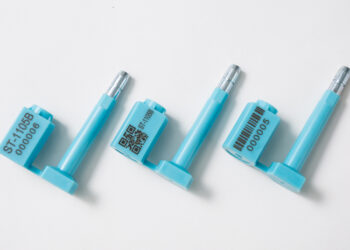ISO 17712 is an international standard that specifies requirements for the design, construction, and testing of mechanical freight container seals. These seals are used to secure shipping containers to prevent tampering and unauthorized access during transportation. Compliance with this standard is crucial for businesses involved in international trade, as it helps ensure the integrity and security of cargo throughout the supply chain.
Djibouti, located in the Horn of Africa, plays a significant role in regional and international trade due to its strategic location near major shipping routes and its modern ports. As a result, the demand for ISO 17712 testing services in Djibouti has grown rapidly to meet the needs of exporters, importers, freight forwarders, and logistics companies operating in the region.
Importance of ISO 17712 Testing Services
ISO 17712 testing services are essential for several reasons:
- Security Compliance: Compliance with ISO 17712 ensures that containers are appropriately sealed, making it difficult for unauthorized access and tampering. This compliance is crucial for meeting security requirements imposed by customs authorities, governments, and international trade organizations.
- Risk Mitigation: By using ISO 17712-compliant seals, businesses can mitigate the risk of cargo theft, smuggling, and other security breaches that can lead to financial losses and damage to their reputation.
- Global Acceptance: As an international standard, ISO 17712 compliance is recognized and accepted worldwide. Businesses that adhere to this standard gain a competitive advantage by demonstrating their commitment to maintaining the highest security standards.
- Insurance Requirements: Many insurance companies require ISO 17712-compliant seals to provide coverage for goods during transit. Testing and certification help companies meet these requirements and ensure their shipments are protected.
ISO 17712 Testing Services in Djibouti:
Djibouti has recognized the importance of ISO 17712 testing services to support its growing role as a trade hub. As a result, several reputable testing laboratories and certification bodies have established their presence in the country to offer these services. These entities have the necessary expertise, equipment, and accreditation to conduct comprehensive testing on various types of container seals.
The testing process typically involves the following steps:
- Seal Classification: ISO 17712 categorizes seals into three classes based on their level of security – “I,” “II,” and “III.” Each class has specific requirements and testing criteria. The testing service providers in Djibouti can help businesses choose the most suitable seal class based on their security needs and cargo type.
- Physical Testing: This involves subjecting the seals to various physical tests to evaluate their strength, durability, and resistance to tampering. Common physical tests include tensile strength testing, impact testing, and cutting resistance testing.
- Chemical Testing: Chemical analysis is conducted to verify the materials used in the seals and ensure they comply with ISO 17712 standards.
- Tamper Evidence Testing: Seals must exhibit clear evidence of tampering if an attempt is made to breach them. The testing laboratories assess the seals’ ability to show visible signs of tampering, such as indicating heat exposure or removal attempts.
- Certification: Once the seals pass all the necessary tests, they are issued ISO 17712 certificates, which serve as proof of compliance and can be presented to customs officials and stakeholders along the supply chain.
Conclusion:
ISO 17712 testing services in Djibouti play a vital role in ensuring the security and integrity of cargo during international trade. By complying with this standard, businesses can safeguard their shipments, mitigate security risks, and meet the requirements of customs authorities and insurance companies. Djibouti’s strategic location and status as a trade hub have attracted reputable testing laboratories and certification bodies to establish their presence in the country, offering comprehensive testing services to meet the growing demand. As trade continues to flourish in the region, adherence to ISO 17712 standards will remain a critical aspect of maintaining a secure and efficient supply chain.











